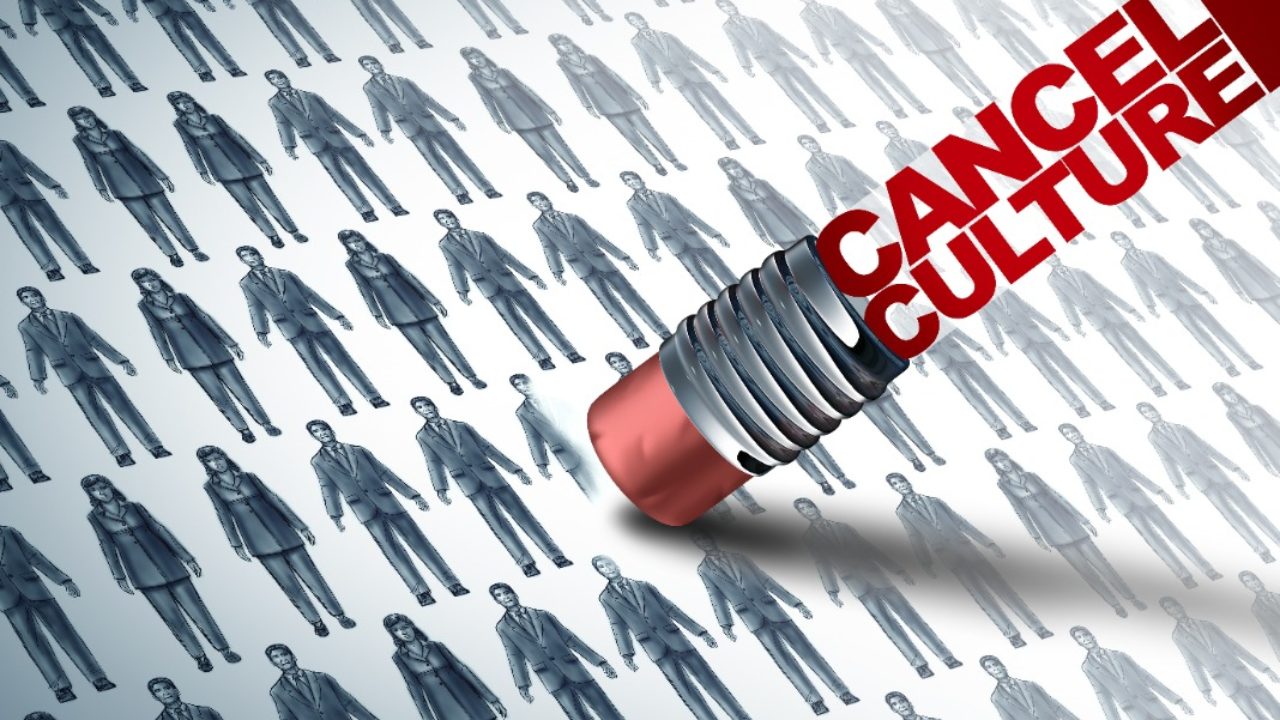‘Canceled’ Special Report: What Does a Word Mean When Used Differently by Everyone?

by Graham Skinker ‘21
Cancel culture seems to be all anyone is talking about: from politicians to celebrities; from teenagers to their grandparents. But what is it? When and how did the term start? What does it mean today? Cancel culture technically is defined as a modern form of ostracism in which someone is thrust out of social or professional circles – whether it be online, on social media, or in person. The person or people who are subject to this repudiation are considered “canceled.” Although the strict meaning of the term has a negative connotation of shunning another, the notion of canceling someone often has been a means to hold a person accountable for their offensive or harmful behavior. Cancel culture has quickly become the most controversial idea in the current culture and discourse. It seems as if everyone has an opinion about it.
The concept of cancel culture began floating around the internet around 2017 as a way to hold celebrities responsible for problematic behavior. One of the earliest instances of cancel culture was in 2017 when Olympic gymnast Gabby Douglas seemingly blamed survivors of sexual assault in a tweet. More recently, country music star Morgan Wallen was “canceled” after being caught on video using a racial slur. Harry Potter series author J.K. Rowling was also canceled after making some anti-transgender comments. Although the concept of cancel culture may seem like a genuinely valid way to hold celebrities accountable, recently it has become very controversial.
Cancel culture is no longer just a way to hold celebrities accountable for poor behavior, and the term has become extremely politicized as well as now being misused as slang as well. The Republican party has bemoaned the term “canceled” or “cancel culture” for a long time. However, recently GOP members have made a political calculation to heavily criticize cancel culture and blame it entirely on the Democrats. For example, when campaigning for the 2020 election, former President Donald Trump said, “The unhinged left-wing mob is trying to vandalize our history, desecrate our monuments, our beautiful monuments, tear down our statues, and punish, cancel and persecute anyone who does not conform to their demands for absolute and total control.”
Jim Jordan, a House of Representative member from the state of Ohio, has recently called cancel culture, “the number one issue for the country to address today,” despite being in the midst of a deadly pandemic. Recently, attacking cancel culture has also been used as a way for politicians to dismiss any criticisms of their words and actions. Senator Ron Johnson, a Republican from Wisconsin, recently made controversial comments regarding the capitol riots. In order to attempt to dig himself out of this hole, Johnson is claiming he is a victim and that he is being “silenced by the left”.
The term “canceled” is becoming only more controversial as the definitions and uses of the word continue to be stretched every day. Now the word is even being used as slang among adolescents. When a word becomes slang, it quickly loses meaning and becomes constantly overused. Almost daily, celebrities and influencers are “canceling” on social media. The appropriation of the term “cancel culture” has caused, what may have once been a valid way to hold celebrities accountable, to become one of the most controversial topics in today’s society.
Also in “Canceled” Special Report:
Political Parties Have Two Different Standards by Emory Gun ’22
Dangerous Ideas on College Campuses by Seth Kauffman ’21
‘The Bachelor’ Needs Serious Reform by Tori Newby ’22
Deplatform the Villains by Lexi Kimmel ’21